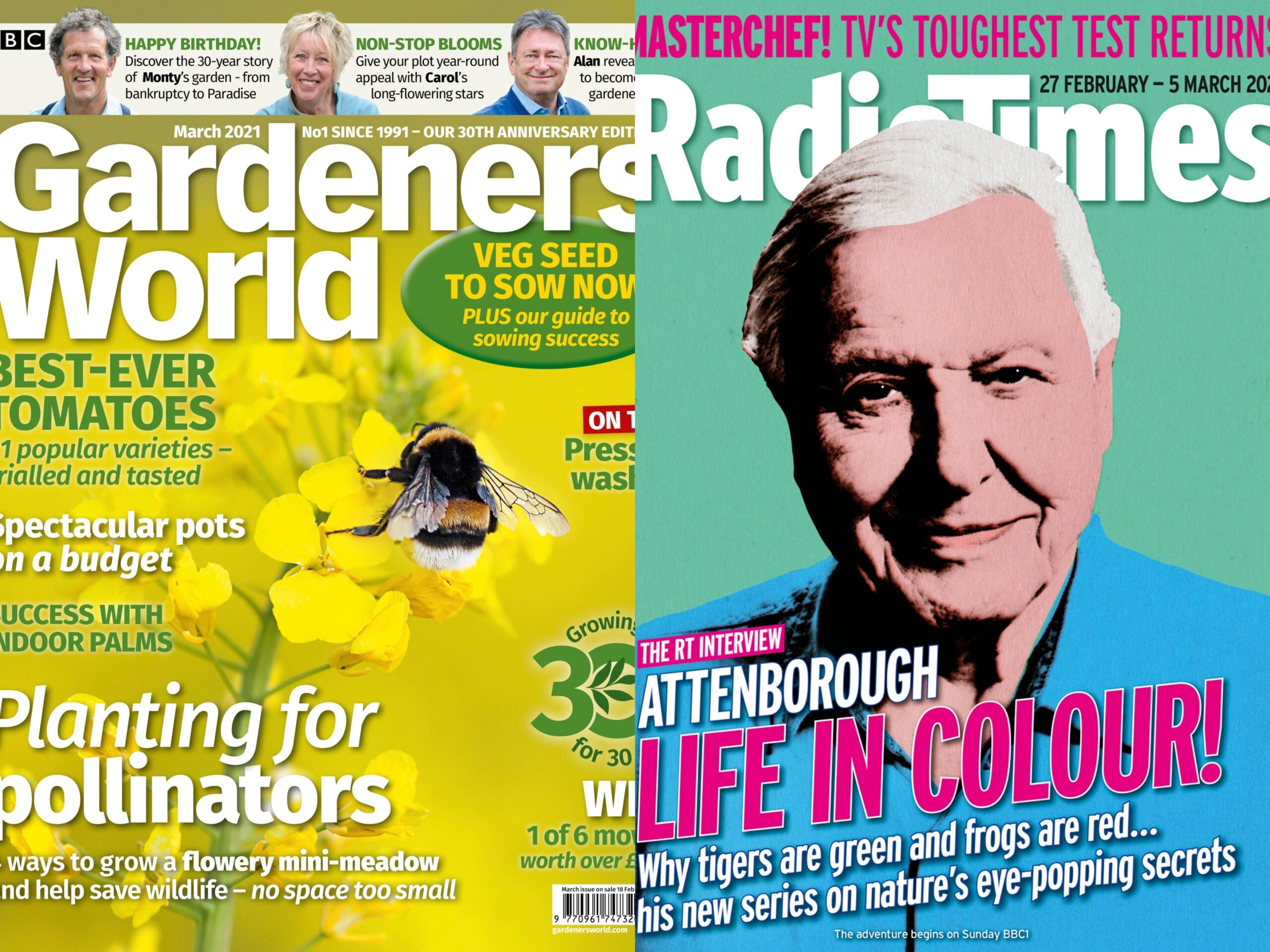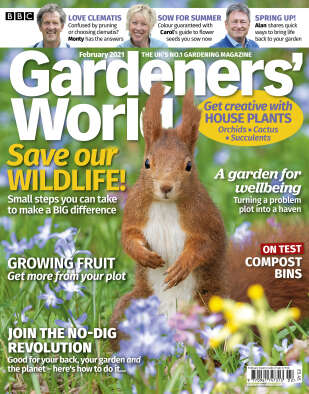
Radio Times saw improved circulation and proved to be a “crucial fourth emergency service” for its readers during the Covid-19 pandemic, according to its co-editor.
The 98-year-old TV magazine, which has been owned by Immediate Media since 2011, grew subscriptions by 12% since the start of the pandemic, reaching an average of 264,197 in the second half of 2020.
Average weekly circulation for Radio Times fell by 6% to 497,852 in the second half of 2020 (its best ABC year-on-year change in seven years) but was up 6% on the first half of the year.
Online, its traffic was up by 14% in 2020 compared to 2019, peaking at 23.9m users accessing 73m pages in November – a 40% year-on-year increase.
[Read more: Immediate Media CEO Tom Bureau on mag giant’s subs-fuelled pandemic rebound]
Joint editor and former executive editor Tom Loxley, who took over the magazine alongside ex-deputy editor and art director Shem Law just a week before the first UK lockdown began, told Press Gazette the pandemic had meant “the nation needs television like it’s rarely needed it before and to get the most out of that you kind of need Radio Times too”.
He claimed Radio Times had acted as a “crucial fourth emergency service” and that lockdown reminded people how valuable magazines can be.
“We’ve really noticed that hunger for entertainment in some pretty drab and dismal months and have found our readers turning to us more than ever,” he said.
“With the nation confined to barracks, the Radio Times has been a valuable friend and guide.”
Loxley, who together with Law was named editor of the year in the entertainment and celebrity category at the BSME Awards last month, said people turn to the magazine instead of just looking for information on the internet because it helps people “make the most of the blizzard of entertainment that’s available out there”.
“Any old idiot can tell someone when something’s on, but you’ve got to really apply some judgment and experience and expertise to be able to guide people… there’s an incredibly astonishing array of TV programmes that can be watched now and lockdown has only made that more of an intense experience for more people,” he said.
The BFI & Radio Times Television Festival in London was cancelled last April but the brand has taken some of those events online in the past year and produced live watchalongs and interviews. Loxley said a webinar with the cast of Netflix period hit Bridgerton was seen by 70,000 people.
“There’s been a lot of interaction with the magazine beyond just the pages we’ve been producing from 47 different kitchen tables in the last ten months,” he said.

Radio Times magazine cover 6-12 February 2021
Looking forward, Loxley said the brand is in a “terrific position” to apply the lessons it has learned during the pandemic once the world opens up again.
In particular, he said: “The relationship we’ve built with the readers cannot be underestimated, the fact that they’ve found us such a crucial part of their lives.
“There’s so many exciting things that we can do online as well to strengthen those relationships that we’ve got with our readers. That engagement, that relationship which has become so strong through the magazine in the last ten months is going to stand us in really good stead when we get out of this lockdown and start to return to some sort of normality… and prove that we can be as valuable to them in an opened-up world as in a locked-down one.”
BBC Gardeners’ World
Immediate’s BBC Gardeners’ World magazine has also had a good pandemic, growing its circulation by 31% year-on-year to 216,663 in the second half of 2020.
It also saw “unprecedented” period-on-period growth of 2% – the magazine’s circulation is usually higher in the first half of the year due to the cyclical nature of fairweather gardeners coming in and out. Editor Lucy Hall said this showed “genuine momentum”.
Subscriptions have increased by 52% since the first lockdown, reaching an average of 178,577 – meaning these loyal readers make up 79% of total sales.
[Read more: Average circulation drop of 6% across UK mag market in 2020]
Online traffic was up 170% in 2020, peaking at 5.5m visitors in May.
Hall, who has edited BBC Gardeners’ World since 2012 following ten years as deputy, told Press Gazette the brand had benefited from a mixture of “luck and judgment”.
The team had been working on SEO for about six months before lockdown, meaning that when gardening search terms began to peak as people were told to stay at home the website was in a good position. They also reinvigorated their social strategy, led by a member of the team who returned from maternity leave a day after lockdown began and was therefore seen as a “free agent” able to pivot to where she was most needed.

BBC Gardeners’ World magazine February 2021
In print, lockdown was well-timed with some pre-existing spring promotions. Although the closure of WH Smiths in particular was initially a scary prospect, being a key way to reach new audiences and casual seasonal readers, that stock was quickly diverted to supermarkets and independent stores instead.
“So the timings did work for us but initially it was as scary for us as it was for everybody, a leap into the unknown and not knowing if that safety net is there,” Hall said.
She added that the magazine has been focusing on prioritising subscriber growth for at least five years already: “It’s chicken and egg but we were getting something right. We were getting the community message and welcoming feel right by just putting the audience at the centre of everything we did.
“I know it’s a terrible cliché, and everybody’s saying that but it really, really did drive everything we did.”
Hall said there had been a shift in tone after the magazine’s sale from the BBC to Immediate in 2011, going from a digital focus to championing print again so they could make the most of the fact specialist titles “have a very natural community of their own”.
She said gardening is “very much rooted in the natural world and experiences and part of that experience is actually the tactile pleasure of taking time off the screen, picking up a magazine, going outside, feeling plants, planting something”.
Retail demand was so great, Hall said, that BBC Gardeners’ World in January launched a series of themed bi-monthly guides.
A BBC Gardeners’ World podcast launched in the autumn, interviewing the likes of Alan Titchmarsh and Monty Don, with the aim of getting 30,000 downloads – but reaching 140,000 listeners within three months, many of whom were younger and had not engaged with the brand before.
The brand’s average reader is aged in their early to mid 50s but Hall said there had been an emergence of a family-oriented demographic in their 30s, especially as many are rethinking their lifestyle choices and want to try growing their own food. She added that gardening is moving away from being seen as an “embarrassing mum and dad hobby “.
“I think that’s real evidence for the future actually that we have an opportunity there to spread interest in gardening, not only as a one-off thing to do at the beginning of the year but actually to engage with it,” Hall said.
“They are engaging with us already digitally and we’re starting to see some of that coming through in print as well, so I think this whole perception that magazines are really just for the older audience and that the younger audience will just come to our brand through digital isn’t entirely being borne out by some of the evidence we’ve been seeing through research, so that’s really encouraging.
“We have a really clear opportunity in print to reach a wider audience across a very wide age group and they’re already responding to that, but we are putting a lot of things in place to make sure that wherever somebody has an interest in gardening, they can find us.”
Email pged@pressgazette.co.uk to point out mistakes, provide story tips or send in a letter for publication on our "Letters Page" blog
